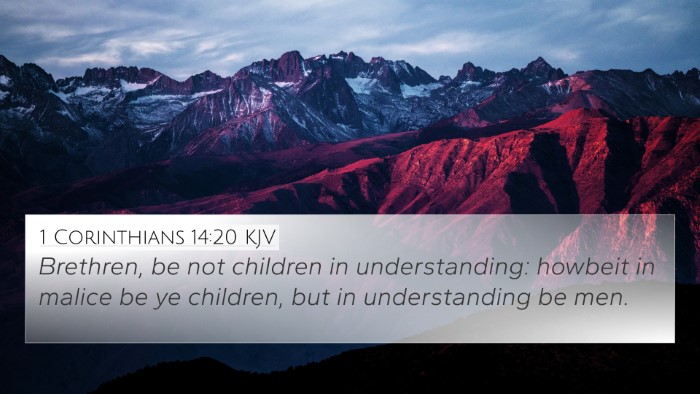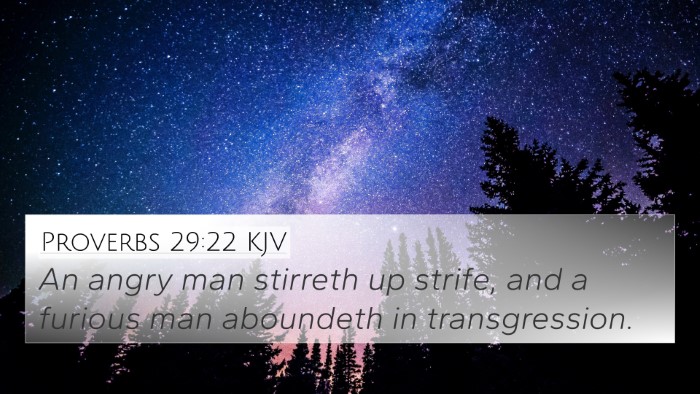This section features a detailed cross-reference designed to enrich your understanding of the Scriptures.
Below, you will find carefully selected verses that echo the themes and teachings related to Ephesians 4:31 KJV. Click on any image to explore detailed analyses of related Bible verses and uncover deeper theological insights.
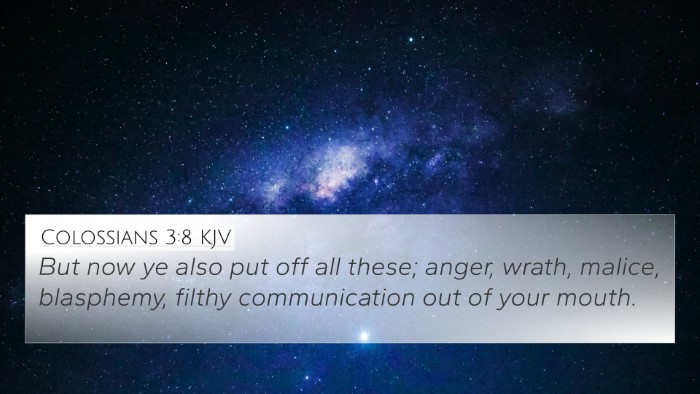 Colossians 3:8 (KJV) »
Colossians 3:8 (KJV) »
But now ye also put off all these; anger, wrath, malice, blasphemy, filthy communication out of your mouth.
 Titus 3:2 (KJV) »
Titus 3:2 (KJV) »
To speak evil of no man, to be no brawlers, but gentle, shewing all meekness unto all men.
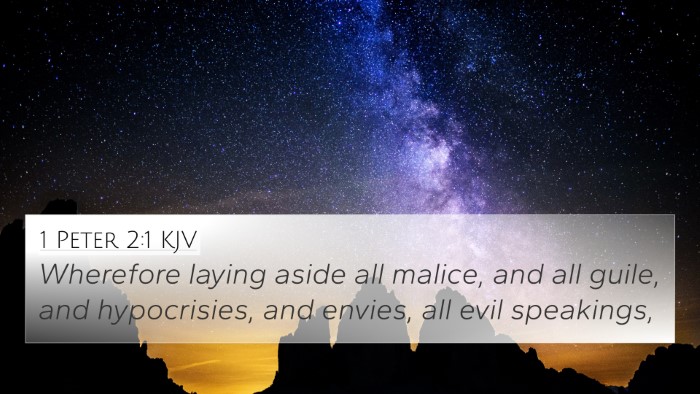 1 Peter 2:1 (KJV) »
1 Peter 2:1 (KJV) »
Wherefore laying aside all malice, and all guile, and hypocrisies, and envies, all evil speakings,
 James 1:19 (KJV) »
James 1:19 (KJV) »
Wherefore, my beloved brethren, let every man be swift to hear, slow to speak, slow to wrath:
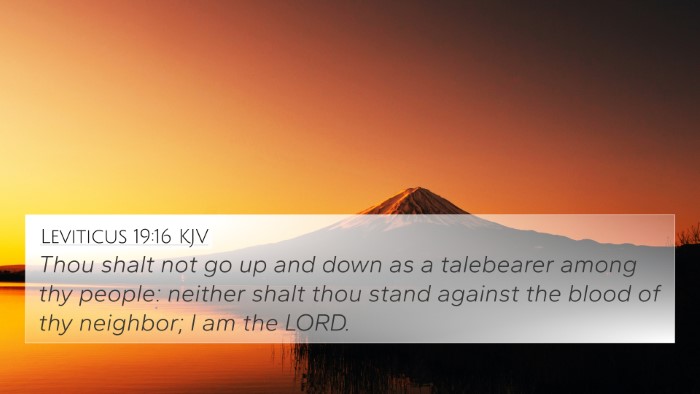 Leviticus 19:16 (KJV) »
Leviticus 19:16 (KJV) »
Thou shalt not go up and down as a talebearer among thy people: neither shalt thou stand against the blood of thy neighbor; I am the LORD.
 James 3:14 (KJV) »
James 3:14 (KJV) »
But if ye have bitter envying and strife in your hearts, glory not, and lie not against the truth.
 1 John 3:12 (KJV) »
1 John 3:12 (KJV) »
Not as Cain, who was of that wicked one, and slew his brother. And wherefore slew he him? Because his own works were evil, and his brother's righteous.
 Romans 1:29 (KJV) »
Romans 1:29 (KJV) »
Being filled with all unrighteousness, fornication, wickedness, covetousness, maliciousness; full of envy, murder, debate, deceit, malignity; whisperers,
 Titus 1:7 (KJV) »
Titus 1:7 (KJV) »
For a bishop must be blameless, as the steward of God; not selfwilled, not soon angry, not given to wine, no striker, not given to filthy lucre;
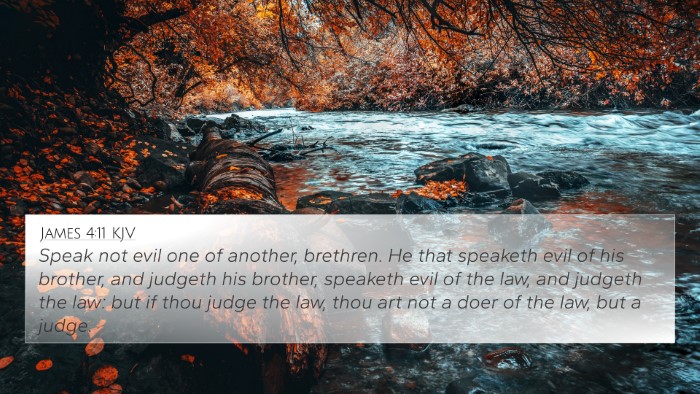 James 4:11 (KJV) »
James 4:11 (KJV) »
Speak not evil one of another, brethren. He that speaketh evil of his brother, and judgeth his brother, speaketh evil of the law, and judgeth the law: but if thou judge the law, thou art not a doer of the law, but a judge.
 Proverbs 26:20 (KJV) »
Proverbs 26:20 (KJV) »
Where no wood is, there the fire goeth out: so where there is no talebearer, the strife ceaseth.
 2 Corinthians 12:20 (KJV) »
2 Corinthians 12:20 (KJV) »
For I fear, lest, when I come, I shall not find you such as I would, and that I shall be found unto you such as ye would not: lest there be debates, envyings, wraths, strifes, backbitings, whisperings, swellings, tumults:
 Psalms 101:5 (KJV) »
Psalms 101:5 (KJV) »
Whoso privily slandereth his neighbour, him will I cut off: him that hath an high look and a proud heart will not I suffer.
 1 Corinthians 5:8 (KJV) »
1 Corinthians 5:8 (KJV) »
Therefore let us keep the feast, not with old leaven, neither with the leaven of malice and wickedness; but with the unleavened bread of sincerity and truth.


















